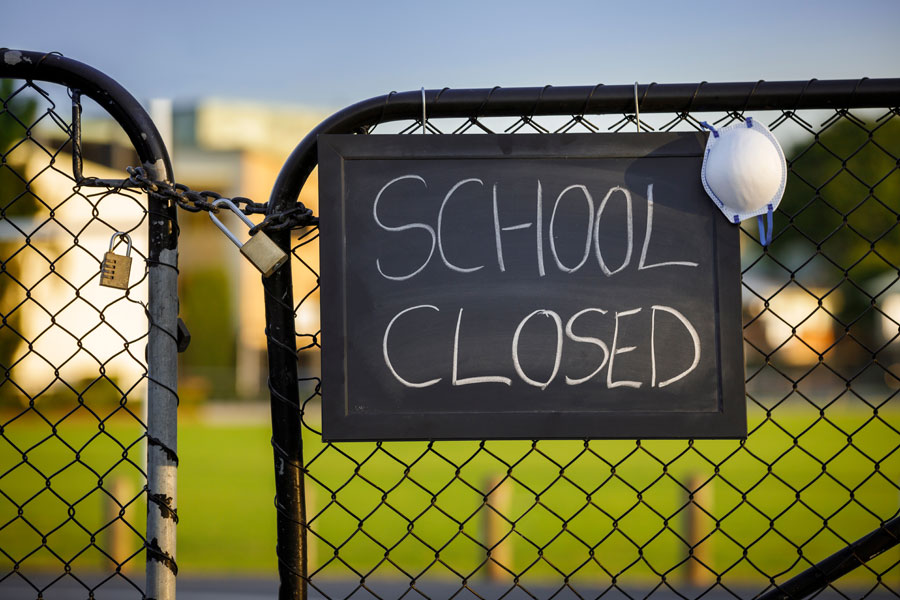Over 154 crore students are severely impacted by closure of educational institutions across the world amid the Covid-19 outbreak due to which girls will be the worst hit as it will lead to increased drop-out rates and further entrench gender gaps in education, UNESCO said.
Stefania Giannini, Unesco assistant director-general for education, told PTI in an interview that shutting down of schools due to the Covid-19 pandemic comes with a warning of 'potential for increased drop-out rates which will disproportionately affect adolescent girls, further entrench gender gaps in education and lead to increased risk of sexual exploitation, early pregnancy and early and forced marriage.'
'Out of the total population of students enrolled in education globally, we estimate that over 89 per cent are currently out of school because of COVID-19. This represents 154 crore students enrolled in school or university, including nearly 74 crore girls. Over 11 crore of these girls are living in the world's least developed countries where getting an education is already a struggle,' she told over phone from Paris.
According to Giannini, for girls living in refugee camps or who are internally displaced, shutting down of schools will be the most devastating as they are already at a disadvantage and education responses must prioritise the needs of adolescent girls' at the risk of reversing 20 years of gains made for girls' education.
'Refugee girls at secondary level are only half as likely to enroll as their male peers. We are only beginning to understand the economic impacts of Covid-19, but they are expected to be widespread and devastating,' she said.
'Particularly for women and girls in countries where limited social protection measures are in place, economic hardships caused by the crisis will have spill-over effects as families consider the financial and opportunity costs of educating their daughters. While many girls will continue with their education once the school gates reopen, others will never return to school,' she said.
The United Nations Educational, Scientific and Cultural Organisation (Unesco) has called for policy-makers and practitioners to look into lessons from the past crises to address the challenges faced by girls as the governments of various counties prepare for 'indefinite' school closures.
'As governments prepare for indefinite school closures, policy-makers and practitioners can look to lessons from the past crises to address the specific challenges faced by girls. We, therefore, call on governments to protect progress made in favour of girls' education through six gender-responsive, evidence-based and context-specific actions,' Giannini said.
The six-point strategy suggested by Unesco for the purpose includes leveraging teachers and communities, adopting appropriate distance learning practices, considering the digital divide, safeguarding vital services and engaging young people.
'Closure of educational institutions even if temporary is problematic for various reasons. Firstly, the reduction in instructional time impacts learning achievement. When schools close, educational performance suffers. Disrupting schooling also leads to other harder to measure losses, including inconveniences to families and decreased economic productivity as parents struggle to balance work obligations with childcare,' she said.
'The closures also compound educational inequities as economically advantaged families tend to have higher levels of education and more resources to fill learning gaps and provide enrichment activities to children who cannot attend school,' Giannini added.
Unesco has launched a global education coalition to support countries in scaling up their best distance learning practices and reaching children and youth who are most at risk.
More than 25 lakh people have been confirmed to have contracted the coronavirus worldwide, with 80 per cent of cases in Europe and the United States.
There have been 25,03,429 recorded cases and 1,72,551 deaths around the world. Europe, the most affected continent, has 12,30,522 official cases and 1,08,797 fatalities, while the US, where Covid-19 is spreading most rapidly, has 7,88,920 cases and 42,458 deaths.











